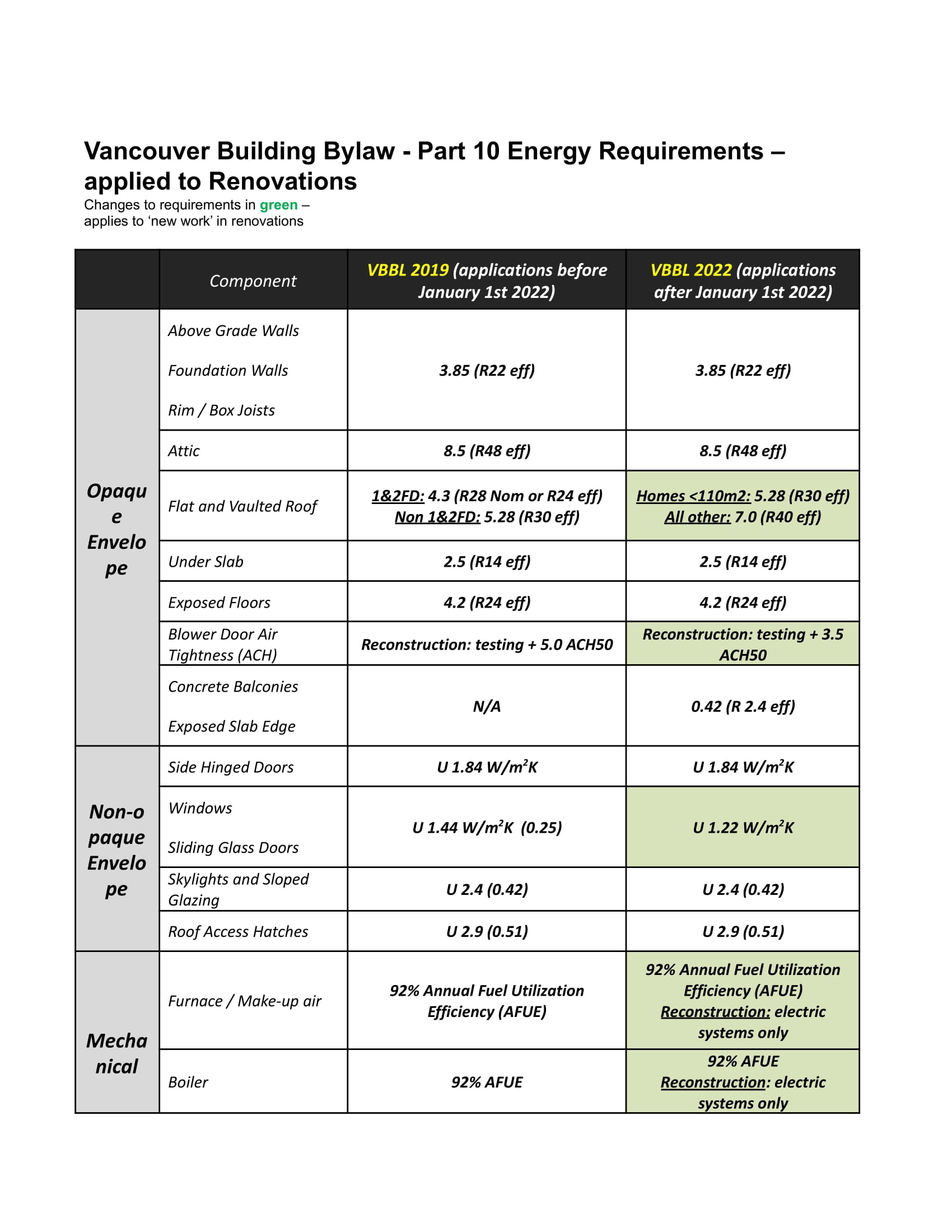City of Vancouver’s Requirements for Renovations
The City of Vancouver requires an EnerGuide report at the pre-permit stage. This process involves an Existing Home Energy Evaluation before the renovation begins. That’s where we come in. We’ll do our best to make this process as smooth as possible. We understand the difficulties and stress involved in renovations, especially at the permit phase, and are here to help guide you through it and make your renovation a success.


New requirements for all renovations of 1-3 storey homes after January 1st, 2022 the following changes apply
(see below table for the summary of changes):
- New windows: must achieve U 1.22 W/m2K (from current U 1.44)
- New cathedral roof: thicker U values (see attached)
- New HRV: achieve 75% SRE (from current 65%)
- Reconstruction (‘full gut’)projects: require electric space & hot water heating
- Solar chases no longer required for reconstruction projects
The Renovation Energy Upgrade Proposal (REUP) is a checklist that the City of Vancouver requires alongside the permit application. It summarizes the scope of work in a renovation and documents the current energy conditions of the house, as well as what the proposed upgrades are.
The REUP is a compliance report and depends on the overall scope of the renovation for your project. Based on the requirement table illustrated above, your project will fall under either the Simple or Alternative REUP compliance.
The project requires a Simple REUP if:
- All upgrades under the scope of work meet or exceed the VBBL for new homes requirements
- Effective R-22* wall insulation
- USI 1.22 or lower windows
- For renovations over $75,000, meet all requirements in the Energy Efficiency Requirements table above
- The renovation does not modify any of the exterior envelope of the home
- Ie. opening the drywall for any exterior wall or ceiling is considered altering the exterior envelope
- The project will require an Alternative REUP if you are unable or unwilling to achieve the VBBL for new homes wall requirements
- For renovations over $75,000, you are unable or unwilling to achieve all requirements in the Energy Efficiency Requirements table above
The Alternative REUP gives you flexibility in your design. The new design must be more energy efficient and/or emit less greenhouse gases per year than the existing home. This is achieved through energy trade-offs that offset the energy savings an equivalent, code compliant home would have. Some examples include upgrading mechanical systems, making significant improvements to the air tightness of the home, or installing better insulation and/or windows beyond the scope of the renovation.
*R-22: The thermal resistance of building assemblies is commonly indicated using R-value, provided in imperial units. The higher the R-value, the better the thermal performance. For a detailed discussion of assemblies and options to reach the R-22 requirement from the Vancouver Building By-Law, contact us.
Browse the City’s official page for more info on the Vancouver Building By-Law for renovations.
Add Capital To Your Home.
Our team is dedicated to reducing the environmental impact of homes, through building science and energy efficiency! Before your project begins we will help you decide what is best for your home



